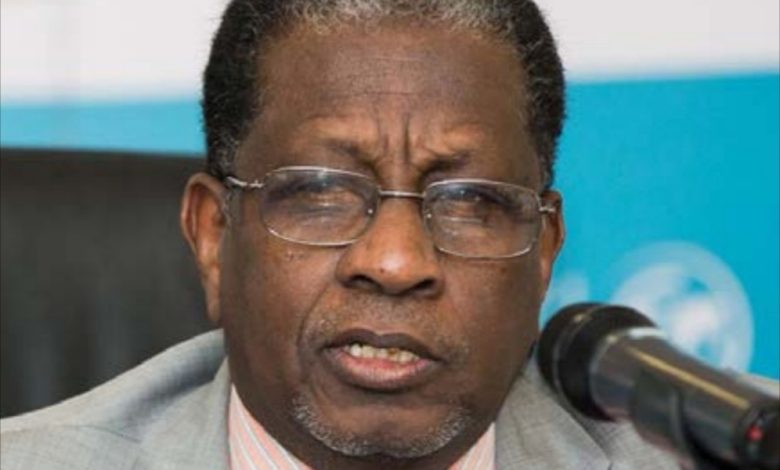Civic Identities in Sudan: A Return to Origins or a Leap into the Unknown? (2)

Al-Tijani Abdel Qader
However, the observable reality in Sudan, as well as in other societies (from the former Soviet republics to countries in Europe, North and Central America, to India and China), not only contradicts these predictions but proves the opposite. Instead of witnessing global openness, we see a rise in populist isolationism in its most extreme forms. Instead of seeing a decline in tribal affiliations, there is a growing trend of increased tribal solidarity and attachment to traditional pre-modern social structures. Even more surprising is that the material lifestyle based on a market economy and “economic interests,” which was expected to dissolve tribal cohesion or reorganize it on a “class” basis, as Marxists dreamed, has instead become a product of tribal gatherings. Many members of the modern elite, including professionals with academic degrees, achieve their economic interests through their tribal networks, manage their business operations through familial and clan-based connections, and speak local dialects. What is even stranger is that we now see some professional politicians (liberals, Marxists, and Islamists) distancing themselves from their political parties and the models of “rationality,” “class,” and “nation” they once advocated, only to become “leaders” of their tribes. This is often done by replacing old terms like tribe, sultan, sheikh, and chief with modern phrases like “revolutionary faction,” “field commander,” “consultative council,” “president,” “tribal coordination,” “tribal spokesperson,” and “supreme council of tribal elders.” This phenomenon, in my view, is no longer merely a social-political trend but has become an epistemological problem. Its solution may not be found through old models but requires a paradigm shift.
Many scholars have noticed this dilemma, leading to a lengthy scientific debate among African political scientists and anthropologists about the concept of “tribe” in the African context. Some have argued that the “tribe” should not be seen as an “objective reality” as it was in pre-modern times but rather as an “ideological cover” (or even a myth) used by some elites to maximize their political and economic gains. This was the conclusion reached by Professor Talal Asad after conducting his famous study on the “Kababish” tribe in western Sudan in the 1960s. (1) Following him in this direction was Dr. Archie Mafeje, the South African thinker, who launched a strong critique of the “new African elites,” who, he argued, were trying to impose the concept of the tribe on post-independence African societies, imagining the objective existence of the tribe in societies that had been thoroughly penetrated by European colonialism and successfully integrated into the capitalist monetary economy. According to Dr. Mafeje, the concept of “tribe” should be confined to societies that practice a primitive economic system and live in local isolation. “There is a fundamental difference,” he says, “between someone struggling on behalf of their tribe to maintain its cohesion and independence, and another who evokes tribal ideology to strengthen an authoritarian position, not in a tribal area but in the capital of a modern country, with the primary goal of undermining and exploiting the assumed tribal identity.” (2)
In my estimation, this is an outdated view that reality has surpassed, as there are no longer “tribes” living in local isolation and practicing a primitive economic system, as Dr. Mafeje wants us to imagine. What exists in today’s world, as we can observe, are transcontinental tribes, rural tribal groups settling in cities, tribal leaders owning companies, and tribal chiefs influencing party leaders and heads of modern states. William Shack, while researching the phenomenon of the “urban tribe” in Ethiopia, noted that separation from tribal life in the countryside and integration into urban life in modern cities “does not weaken the bond between tribe members (as liberals and Marxists assumed) but rather strengthens it.” Even after living in an urban environment, Shack adds, Africans maintain their tribal identity and their membership in rural communities. They always think in terms of “the back region,” with most social and economic activities of urban Africans aimed at establishing tribal institutions in cities and activating them to maintain clan relations with rural villages, where they expect to retire eventually. (3)
This description is closer to reality and corresponds, to some extent, with the Sudanese situation. However, the question that must be raised here is: What is the “secret” that exists, for example, in the sheiks of the Kababish tribe (the sons of Fadlallah) that makes the Kababish people rally around them over the years, despite the structural exclusion, marginalization, and exploitation they experience (as Talal Asad claimed)? And suppose we apply this analogy more broadly. In that case, we might also ask: What is the “secret” behind figures like Musa Hilal, Al-Hilu, Chief Turk, or Minni Arko Minnawi, which makes one tribe or another rally around them? Do these new leaders derive their authority from material coercion, military competence, and political approval? Are they real tribal sheiks followed by their tribes, or are they political factions using the tribe as an ideological cover, as Mafeje suggests? Or, rephrasing the question: How does one become a “leader” in the Sudanese tribal context? What are the spiritual, economic, or military sources from which a leader derives their power?



